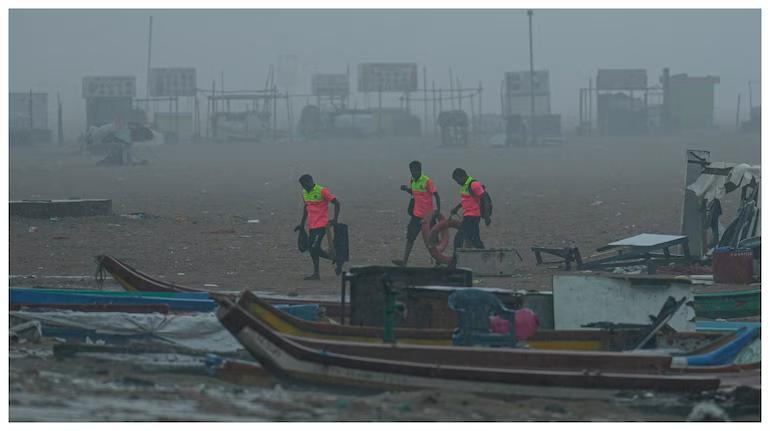
91% of TN’s Coastal Zone at High Flood Risk by 2100: Study
The coastal zones of Tamil Nadu, a southern Indian state, are facing a significant threat from flooding, a new study has warned. According to the study, led by the National Institute of Technology (NIT) in Trichy, a staggering 91% of the state’s coastal zone is at high flood risk by the year 2100. The study highlights the alarming consequences of unchecked urban development, land use changes, and climate change on the state’s coastal regions.
The research, which analyzed the flood risk in Tamil Nadu’s coastal areas over the period of 2000-2100, found that the risk of flooding will increase across all future climate scenarios. The study’s findings are a cause for concern, not only for the state’s residents but also for the country as a whole.
Flood risk is a growing concern worldwide, with climate change playing a significant role in its increase. Rising sea levels, more frequent extreme weather events, and increased precipitation are all contributing factors to the growing threat of flooding. In the case of Tamil Nadu, the state’s coastal regions are particularly vulnerable to flooding due to their low-lying terrain and high population density.
The study, which was published in the Journal of Hydrology, used a combination of remote sensing data, GIS techniques, and statistical analysis to assess the flood risk in Tamil Nadu’s coastal areas. The researchers analyzed the flood risk in different scenarios, including steady state, high-emission, and low-emission scenarios, to understand the impact of climate change on flood risk.
The findings of the study are stark. According to the researchers, the flood risk in Tamil Nadu’s coastal areas is likely to worsen due to unchecked urban development, land use changes, and climate change. The study highlights the need for urgent action to mitigate the impact of flooding on the state’s coastal regions.
The study’s lead author, Dr. R. Suresh, from the National Institute of Technology, Trichy, said, “The study highlights the importance of considering the impact of climate change on flood risk in coastal areas. The findings suggest that the risk of flooding will increase across all future climate scenarios, and it is essential to take proactive measures to mitigate this risk.”
The consequences of flooding are far-reaching and devastating. Not only can it cause significant damage to infrastructure and property, but it can also have a lasting impact on the environment, economy, and human health. In the case of Tamil Nadu, the state’s coastal regions are home to several major cities, including Chennai, the state capital, and Coimbatore, the second-largest city.
The study’s findings have significant implications for the state’s residents, policymakers, and urban planners. The need for sustainable urban planning, flood-risk management, and climate-resilient infrastructure is more urgent than ever. The study highlights the importance of considering the long-term consequences of urban development and land use changes on flood risk.
In conclusion, the study’s findings are a wake-up call for the state of Tamil Nadu and the country as a whole. The risk of flooding in the state’s coastal areas is a growing concern, and it is essential to take proactive measures to mitigate this risk. The study’s findings underscore the need for sustainable urban planning, flood-risk management, and climate-resilient infrastructure to ensure the state’s coastal regions are protected from the devastating impacts of flooding.






